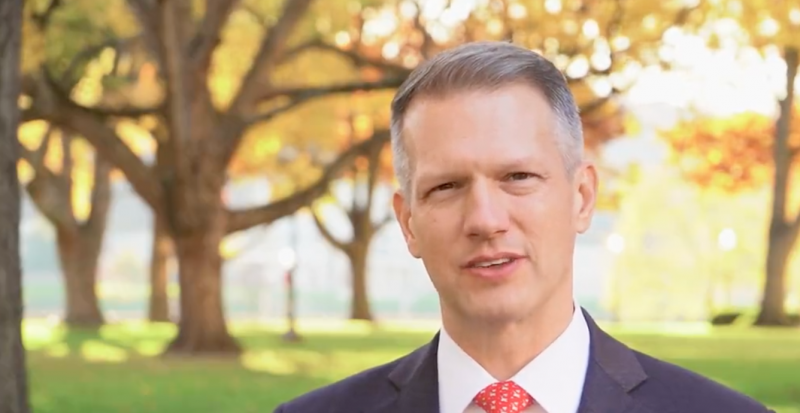West Virginia Treasurer Puts Banks on Notice for 'Woke Capitalism'

November 24, 2021 - State Treasurer Riley Moore is leading West Virginia and a coalition of states to put banks on notice for playing politics with taxpayer dollars.
In a press release and video released Monday, Moore and financial officers in 15 other states wrote an open letter to the U.S. banking industry warning them against pulling investments from fossil fuel industries or making decisions about investments based on political considerations. Moore called this “woke capitalism.”
“I’m announcing a multi-state coalition of state treasurers and state financial officers to push back against the woke capitalism that is happening in this country right now,” Moore said in a video statement. “Currently, we have banks that are denying capital to the fossil fuel industry around the country. Coal, gas, and oil are critical industries in our country. As a coalition, we’ve come together to say we’re not going to take it anymore.”

State Treasurer Riley Moore explains his letter to the banking industry warning about consequences for turning away coal, oil, and natural gas industries.
Photo provided
According to the letter, Moore and the coalition said they would take collective action against banks who boycott investing in coal, oil, natural gas, and other fossil fuels. While each state has different laws governing what they can do, Moore said it was possible that states could close accounts at banks who choose to deny fossil fuel companies access to loans and other forms of banking services.
“We have a compelling government interest, when acting as participants in the financial services market on behalf of our respective states, to select financial institutions that are not engaged in tactics to harm the very people whose money they are handling,” the letter stated.
“Further, we have the responsibility, as fiduciaries and stewards of more than $600 billion, to ensure that our financial service providers are free from harmful conflicts of interest that could jeopardize state funds,” the letter continued. “Any financial institution that has adopted policies aimed at diminishing a large portion of our states’ revenue has a major conflict of interest against holding, maintaining, or managing those funds.”
The letter is similar to a May letter sent by Moore and 14 state financial officers to John Kerry, President Joe Biden’s special presidential envoy for climate, raising concerns about White House pressure on banking and financial institutions to halt lending to the fossil fuel industry. Moore accused Kerry of pushing for divestment that will force banks to discriminate against coal, oil and natural gas companies.
Biden has also nominated Saule Omarova as comptroller of currency, a job that involves regulating banks. During a confirmation hearing, it was revealed that Omarova made comments in February talking about the possibility of coal, oil, and natural gas companies going bankrupt, calling them “troubled industries.”
“A lot of the smaller players in that industry are going to probably go bankrupt in short order,” Omarova said at a seminar hosted by the Jain Family Institute, a social science nonprofit. “At least, we want them to go bankrupt if we want to tackle climate change, right?”
In April, Biden announced a goal to reduce greenhouse emissions by between 50% and 52% of 2005 levels by 2030. At a virtual summit with world leaders on the changing global climate earlier this year, Biden told world leaders that the goal is for the U.S. to be carbon-neutral by 2035.
During the United Nations Climate Change Conference in Glasgow, Scotland two week ago, Kerry told Bloomberg that “By 2030 in the United States, we won’t have coal.” Moore believes that the federal government is exerting pressure on banks to turn away fossil fuel industries.
“In a state like mine in West Virginia, we rely on these industries not just for jobs and our economy, but also our tax dollars,” Moore said Monday. “We can’t stand idly by while these banks try to diminish our money but then also handle our money. That said, we are going to start to reform our contracting process moving forward. We want to do business with banks that want to do business with our people and with our state.”

